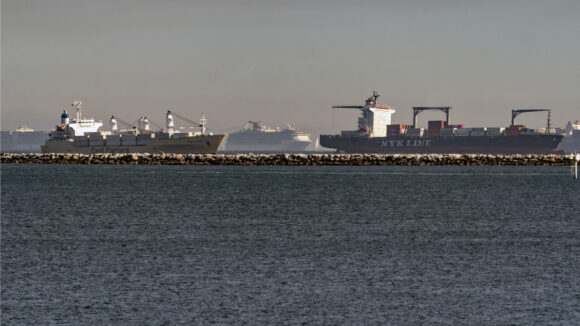Business interruption was rated as the most dire risk to global businesses in 2020, according to risk management experts in 92 countries surveyed by Allianz Global Corporate & Specialty.
Allianz said in its annual Risk Barometer report that business interruption along with pandemic outbreak and cyber incidents are interlinked as a “COVID-19 trio” that demonstrates “growing vulnerabilities of a highly globalized and connected world.”
“Looking forward, the pandemic shows companies need to prepare for a wider range of business interruption triggers and extreme events than previously,” the company said. “Building greater resilience in supply chains and business models will be critical for managing future exposures.”
Allianz said the pandemic highlights the importance of business continuity planning for current and future operational disruptions. According to the Risk Barometer report, when asked what actions is their company taking to reduce risk for supply chains, 62% of the 2,769 respondents cited improving business continuity management while 45% said developing alternative or multiple suppliers and 32% said investing in digital supply chains.
Allianz said the pandemic has significantly impacted supply chains. After container shipping was effectively grounded in the spring of 2020, components failed to arrive and production came to a standstill in many industries, especially the automotive sector, the report says.
“In reaction to the pandemic we are seeing clients make changes including near-shoring (bringing production to a nearby country) and some re-shoring and changing the locations of supplies, particularly for US companies,” stated Philip Beblo, a global practice group leader for Allianz. “Companies are increasingly thinking about the consequences of events like natural catastrophes and civil unrest, and how quickly they will be able to find alternative suppliers.”
Business interruption has always been among risk managers’ top concerns, but “pandemic outbreak” rose to a No. 2 ranking from No. 17 in the 2020 report. “Cyber incidents” dropped to No. 3 from No. 1. Business interruption rose to No. 1 from second place last year.
Another risk re-emerged as a top concern in 2020: civil unrest.
The Risk Barometer ranked civil unrest as the 10th most-often risk business risk by survey respondents, marking its first time in the top-ten list since 2018. Damages and business interruption caused by rioting associated with the Black Lives Matter movement have been well documented in the US. A separate report that expands on the Risk Barometer findings says there were also anti-lockdown demonstrations in Germany and arson attacks on cell phone towers in the United Kingdom.
“Fortunately, large-scale terrorism events have declined drastically in the last five years. However, the number, scale and duration of riots and protests in the last two years is staggering and we have seen businesses suffering significant losses,” stated Bjoern Reusswig, head of global political violence and hostile environment solutions for the insurer.
Allianz said Verisk Maplecroft expects 85 countries to experience an increase in protests by late 2022 and more than 30 — primarily in Europe and the Americas — will see significant activity. The report noted that damages caused by rioting after the police killing of George Floyd was projected to total $2 billion.
The COVID-19 pandemic will likely spark further violence the report says.
“The measures governments have used to combat the coronavirus have had a significant socioeconomic impact and frustration is growing in large population segments,” stated Michael Stone, an Allianz risk consultant for North America. “The impact is particularly evident in the US, where the social safety net is not as comprehensive as elsewhere. People are concerned. Job, health and income security are all gone. They’re more likely to demonstrate and have a shorter fuse, so it isn’t surprising that anti-lockdown demonstrations can turn violent.”
About the photo: In this Feb. 19, 2021 photo, high number of container ships, a cruise ship, and a small sail boat, dot the coast of Long Beach waiting to dock at the Ports of Los Angeles and Long Beach off the California Coast. A trade bottleneck born of the COVID-19 outbreak has U.S. businesses waiting for shipments from Asia _ while off the coast of California, dozens of container ships have been anchored, unable to unload their cargo. (AP Photo/Damian Dovarganes)
Was this article valuable?
Here are more articles you may enjoy.


 Elon Musk Alone Can’t Explain Tesla’s Owner Exodus
Elon Musk Alone Can’t Explain Tesla’s Owner Exodus  Canceled FEMA Review Council Vote Leaves Flood Insurance Reforms in Limbo
Canceled FEMA Review Council Vote Leaves Flood Insurance Reforms in Limbo  Berkshire Utility Presses Wildfire Appeal With Billions at Stake
Berkshire Utility Presses Wildfire Appeal With Billions at Stake  China Bans Hidden Car Door Handles in World-First Safety Policy
China Bans Hidden Car Door Handles in World-First Safety Policy 